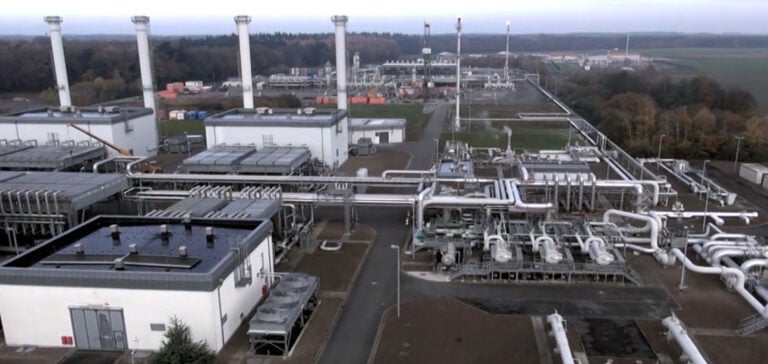Germany will escape gas shortages, says Economics Minister, but stresses need for vigilance in face of uncertainties. To guarantee energy supplies, the country maintains reserve coal-fired power plants.
Full Gas Reserves
Germany’s Minister of Economic Affairs, Robert Habeck, announced that “reserves (of gas) are full” and expressed confidence that Germany would get through the winter without shortages. However, he also called for vigilance, stressing that the energy crisis was not over, citing events such as the recent leak from the Finland-Estonia pipeline and strikes at gas facilities in Australia.
The Energy Crisis Context
Deliveries of Russian gas via the Nord Stream pipeline were interrupted last year due to the war in Ukraine and pipe sabotage. This interruption deprived Europeans, and Germany in particular, of an essential source of gas. To cope with this exceptional situation, Germany decided to use reserve coal-fired power stations to produce more electricity, thus conserving gas for heating and industry. This use of coal-fired power plants is temporary and is not expected to last beyond March 2024. Germany is sticking to its target of phasing out coal by 2030, despite criticism of its use of this polluting energy source.
No Impact on Climate Objectives
Robert Habeck assured us that the use of these reserve coal-fired power stations would have “no impact on the country’s climate objectives”. He also confirmed that these reserves would no longer be needed from winter 2024, thanks to the rapid construction of LNG terminals to import liquefied gas by sea. With the opening of three existing LNG terminals and the construction of three more next year, Germany should have sufficient infrastructure to guarantee a comfortable gas supply.
However, the Minister also stressed that he could not promise anything in a world characterized by unforeseen events that could upset the current situation.
According to the federal regulator, gas reserves in Germany are currently over 97% full, in line with the government’s target of 95% from the end of September. Overall consumption has fallen considerably, reaching 30.8% below the average for the same period between 2018 and 2021.





















